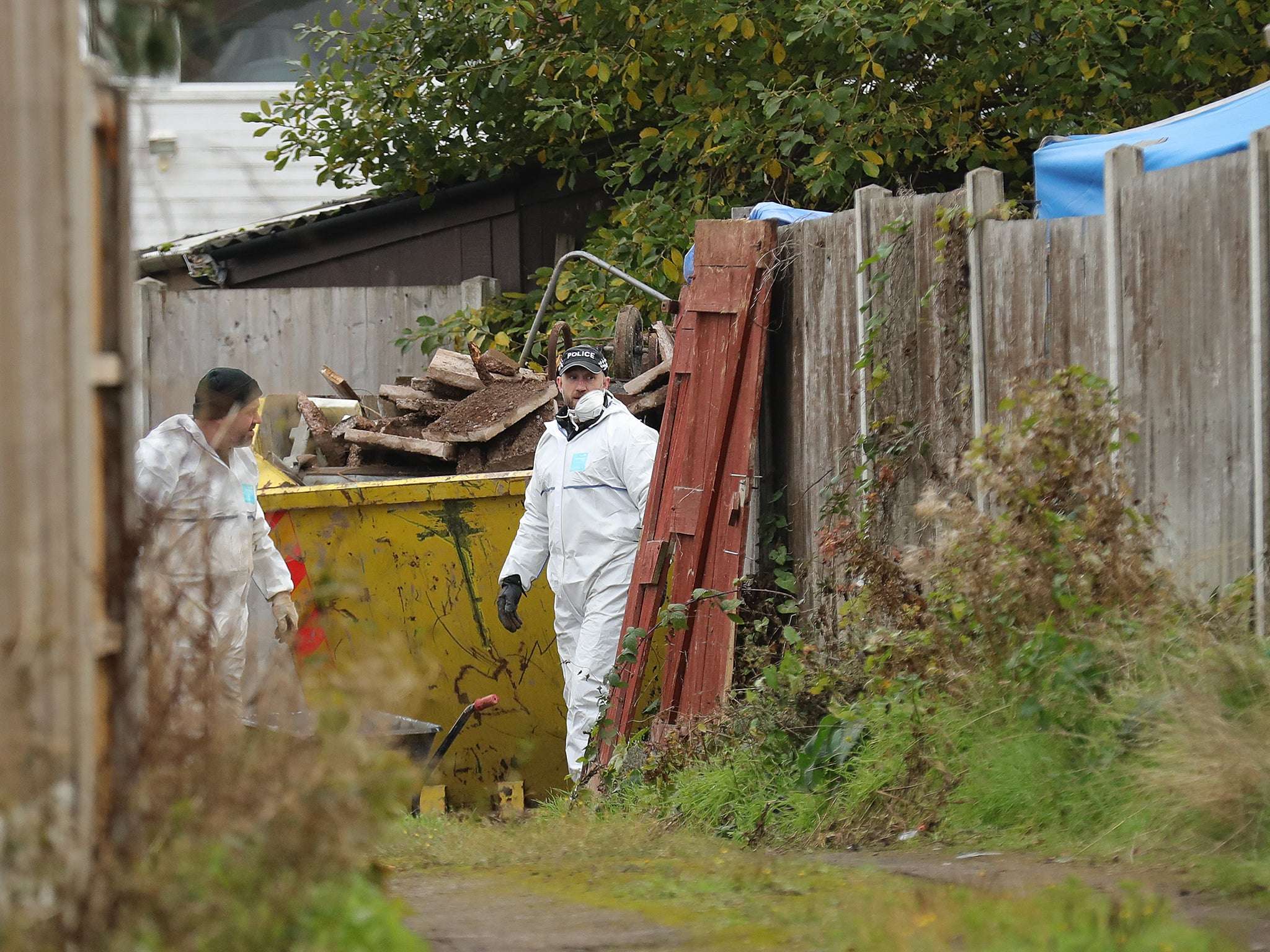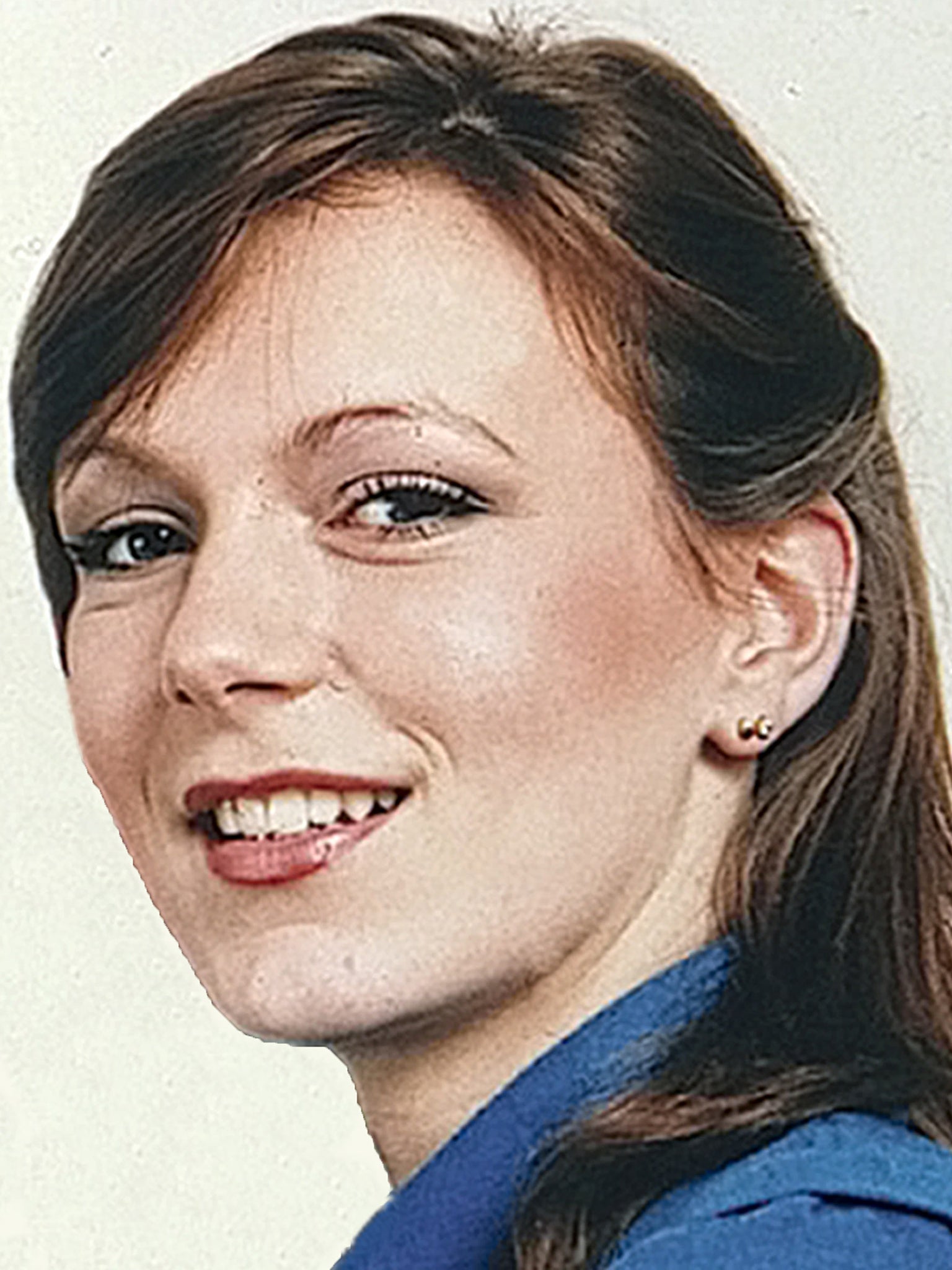Cold cases are getting colder: Why we must have an ending to the story
We hate not knowing what happened to Suzy Lamplugh and Madeleine McCann and so many others because we need a resolution. As cold cases get colder, crime fiction becomes ever more popular. As Andy Martin remarks, we need an ending – a final page to the story


Everyone who is old enough will remember her face, beaming out from a radiant photo. More than 32 years ago, on 28 July 1986, Suzy Lamplugh, an estate agent, walked out of her office to meet a client, a certain “Mr Kipper” (or possibly “Kuiper”) and show him over a house in Fulham. She never returned. She was officially declared dead, presumed murdered, in 1994.
In the past few weeks, we have witnessed the police digging up a garden in Sutton Coldfield – which once belonged to the mother of the chief suspect in the case – in the search for a body. They dug in vain but vow to continue the investigation. In other words, we still don’t have much of a clue of what became of her. And we hate not knowing.
This applies not just to her close family, like her brother (her parents are now both dead), her colleagues and neighbours, her immediate community, but to every one of us who ever heard about what happened but never found out how it ended. Just as Durkheim argued in his “functionalist” theory of crime, society is drawn together in a reaffirmation of its norms. But there remains a question. A mystery left unresolved. A whodunnit without a who.

And even now, so many years on, the imperative to achieve some kind of “closure” is left unsatisfied. So too, of course, the desire for justice. We have to go on digging until, in the end, we unearth hard evidence. Or, as Aristotle put it so neatly in the first line of his Metaphysics, “All humans by their nature seek to know.”
The collective unconscious is driven by epistemophilia (or love of knowledge: the word is Freud’s, even if he mostly meant by it looking through keyholes). Even if we are not exactly victims, nor even witnesses, we – it has to be the first-person plural – feel that we are still at some level intimately involved. We end up like detectives still carrying on “inquiries” years after the event, craving data, sucked in by an information black hole.
In what is probably the most high-profile missing person case of this century, three-year old Madeleine McCann disappeared on the evening of 3 May 2007 from her bedroom in the holiday resort of Praia de Luz, Portugal. Her distraught parents, Gerry and Kate, begged for information regarding her whereabouts. The local police, having first of all contaminated the crime scene, then covered themselves by blaming the parents. Recently, over 11 years later, the Home Office pledged a further £150,000 to the ongoing investigation, “Operation Grange”, which has already cost over £12 million. There is still a reward of £2.5 million on the table.
In the hunt for answers, we are forced to conjure up freewheeling hypotheses. At the exact time little Madeleine went missing, Marnie Riches was on holiday in the Maldives with her blonde daughter, the same age as Madeleine, when she read about the abduction in Praia de Luz. Nearly a decade later, with no sign of a solution, she sent in her own fictional black female detective, George McKenzie, to solve a comparable crime in The Girl Who Walked in the Shadows and thus, in an allegorical way, obtain revenge for Madeleine (and Gerry and Kate too).
But the strange fact is that even professional detectives are driven to turn into novelists to conjure up answers. In December 2000, a nine-year-old boy, Russ Doyle, was killed in a hit-and-run in Oxford. A reward was offered. There was the promise of immunity for the passengers in the car. There were several arrests, but after years of investigation, and an inquest verdict of “unlawful killing”, no one was ever charged or brought to justice. The car was identified, but it was a “pool car”, that is, a vehicle used by various people for nefarious purposes. “It was like there were two communities,” says Clare Mackintosh. “One desperate to find justice – and the other, the criminal fraternity, closing ranks.” Omertà ruled in Oxford.

Mackintosh was a fast-track graduate officer who had been posted to Oxford in the same year. It was not her case, but “the entire city was involved. Every police officer wanted to find out who was driving. You would be constantly talking to people about it, even if you were arresting them for something completely different. It was a case that refused to die.” But the senior detective had to retire without ever wrapping it up.
That incident became a defining moment in Clare Mackintosh’s career, imprinting a whole set of recurring questions in her mind: “How could the driver of that Vauxhall Astra live with what they’d done? How could the passenger keep quiet about it? How could the child’s mother ever come to terms with such a terrible loss?”
When she lost one of her own children to meningitis, she took a career break and wrote a psychological thriller, I Let You Go, inspired by the case, featuring a young boy killed in a hit-and-run, but with a clear, if twisty, solution. Her first book deal came through a month before she was due to go back to work, her book became an international bestseller and she is now a full-time novelist. It was a natural career move.
The numbers of cold cases in the world is steadily growing. Detective Constable Lisa Cutts is a serving officer in the Kent Police, investigating homicide and rape. When she and her colleagues have tried everything that “Holmes” (the “Home Office Large Major Enquiry System”) asks of them, they turn over unsolved crimes to the cold cases team, which has a separate office. “In most murders,” says Cutts, “you can generally identify a suspect or suspects. If you have no CCTV or mobile phone data then you’re relying on forensics.”

She still thinks that “door-to-door inquiries are the best thing”. But she agrees that DNA has been a game-changer. “It may be someone who’s never been in trouble before and therefore isn’t on the records – but then their familial DNA pops up in another inquiry and there’s a close match.” She says she gets a lot of job-satisfaction: “You walk away happier when the family gets an answer.''
But being a detective can also be “extremely frustrating. There are limits to the time you can spend on a case. So you end up letting people go who you know are guilty – and you never see them again.” Which probably explains why she turned from fact to fiction. Cutts has a string of police procedurals to her name whose very titles speak to her desire to achieve justice and knowledge: Lost Lives, Buried Secrets, Never Forget. She has an agreement with the Kent police that she won’t use real cases. “It’s hard,” she says. “I have to go out of my way to make up new ways of murdering people that haven’t been used already.”
One of her books, Remember, Remember is based on a train crash that happened 50 years ago. “There was a problem though,” she says. “I thought, could we really still be investigating cases going back that far?” So she goes and has a word with the Cold Cases team and asks them if her idea is even plausible. It turns out they have a “live” murder case going back even further, to 1949, “and they are ready to open it up again just as soon as any new information comes up.”
She is proud of their sheer perseverance and persistence: “We never give up.” Her former colleague, Elizabeth Haynes, a civilian data specialist, went back even further to Victorian times and a real murder that took place in Bromley, Kent, in 1843, but likewise had to resort to writing a novel about it, The Murder of Harriet Monckton.
Not everyone is impressed by the police record in solving or even tracking crimes. The vast majority of crimes are simply never solved. Paul Hughes, of pHinterim, based in Lincoln, is an ex-military forensics expert. “From my perspective,” he says, “they’re all cold cases. I get brought in when the police are stuck.” He is a specialist in “cognitive ergonomics” and adopts what he calls a “holistic” approach.
From my perspective, they’re all cold cases. I get brought in when the police are stuck. I don’t have time constraints. They have to do it in a hurry
“The police tend to break it down into bits and have different people doing different things. I don’t have time constraints. They have to do it in a hurry. They miss things.” He says the problem is that “people don’t look at the detail. You can zoom in. Be unequivocal.” He also led me to a colleague who didn’t want to be identified for reasons that will become obvious.
“Ray”, as he asked me to call him, lives somewhere in the north of England. He is a forensic data analyst and former surgeon. “The police are in the stone age, I’m afraid,” he says. “They don’t know what they’re doing.” In a quantum world, I suggest, maybe we have to expect uncertainty and known unknowns. Ray shakes his head, in a mix of sorrow and anger. “In the past five years, the police have gone from little hope to absolutely no hope in the majority of cold cases.” And the main reason for investigative failure is austerity. “They don’t have the budget to get the people to do the job.”
Ray is regularly employed by the Home Office. “They [the police] have no in-house expertise. They try to do it on the cheap and make a complete and utter bollocks of collecting evidence and then the defence drives a coach and horses right through it and the case collapses.” Lisa Cutts argues that “there is always a budget for murder”. But Ray scoffs at this idea. He sees a bigger picture in which lack of resources in one area ramps up crime in another. Surprisingly enough, he believes most crimes up to and including murder are related to car theft. Here’s how it happens.
Around eight to 10 years ago, the police were told to ignore vehicle theft and focus on other crimes. “If your car is stolen,” says Ray, “you won’t even get a crime number. It’s become a huge growth area – the ‘perfect crime’ because the police don’t give a damn and won’t investigate.” We’re all paying for it, but not only in terms of higher insurance premiums.
“If it’s worth nicking, organised crime will nick it.” This particularly applies to high-end cars, such as Range Rovers and Mercedes. Highly sophisticated gangs working out of, for example, Israel or China, provide the tools that enable thieves to reverse engineer the “CAN bus protocols” that control keyless technology. “All cars are easy to steal if you have the right kit,” says Ray. The cars are spirited out of the country within a few hours. The thieves makes millions of pounds out of the trade. That revenue stream is then ploughed back into drugs, guns and human trafficking.
Hitmen are at work in this country right now, says Ray. A hire car is left at the airport, with the appropriate weapons on board. The assassin lands at the airport on a fake passport, picks up the car, uses the weapons to do the business, then drives back to the airport, dumps the car, and flies out again, using another fake passport. “You can have seven or eight murders at a time, in different locations.”
In the past the satnav would at least enable you to work out where the car had been and which crimes it was linked to. Now even that may no longer be possible. “Satnav used to be the key to cracking a case,” says Ray. “Now it’s useless. The company didn’t like the association with crime, so they engineered their boxes to wipe the history. Purely to protect the brand.”
By way of response, Ray invented a “covert tracking device” that can be placed on suspect vehicles. “We have to keep it covert even from the police,” he says. “Otherwise the crims find out. Organised crime has very deep pockets.”
Nescience (or ignorance) is expanding right alongside science. Maybe overtaking it. The net result is two-fold: a rise in frustration at the lack of actual resolution of crimes and, ironically, the rise and rise of “crime”, a fictional form of resolution. Crimes get colder and crime gets hotter. Back in the 1960s, Roland Barthes demonstrated that the “hermeneutic code”, which poses a question or a puzzle and then gradually answers it, is an integral thread in literature.
The crime genre picks out and expands and riffs on the hermeneutic code. But it’s the crystallisation of an instinct hard-wired into us. It corresponds to a basic psychological, even biological need. We hate not knowing what happened to Suzy Lamplugh and Madeleine McCann and so many others. We ask questions of the world and we want answers, especially who did what to whom. If we don’t get them, we send for imaginary vigilante heroes to rectify matters and punish the perpetrators.
What do Sherlock Holmes, Sigmund Freud, and a nomadic hunter-gatherer (and, by extension, the rest of us) have in common? Carlo Ginzburg, the Italian historian, said it was the “cynegetic paradigm”, the need and ability to follow a trail or a scent or clues. As the cover of The Girl Who Walked in the Shadows puts it succinctly, “Some secrets can’t be buried. Some tracks can’t be covered.” In other words, some can be buried, some can be covered, but the crime novel is there to reassure us otherwise. The “mystery” offers to repudiate and overcome mystery.
Human beings are inherently teleological creatures: we have (in Frank Kermode’s phrase, which became the title of a novel by Julian Barnes), “the sense of an ending”. We all want to read the final page. We need the “Book of Revelation” – not just at the end of the Bible – precisely because it is so rarely achieved in real life.
Andy Martin is the author of Reacher Said Nothing: Lee Child and the Making of Make Me. He teaches at the University of Cambridge